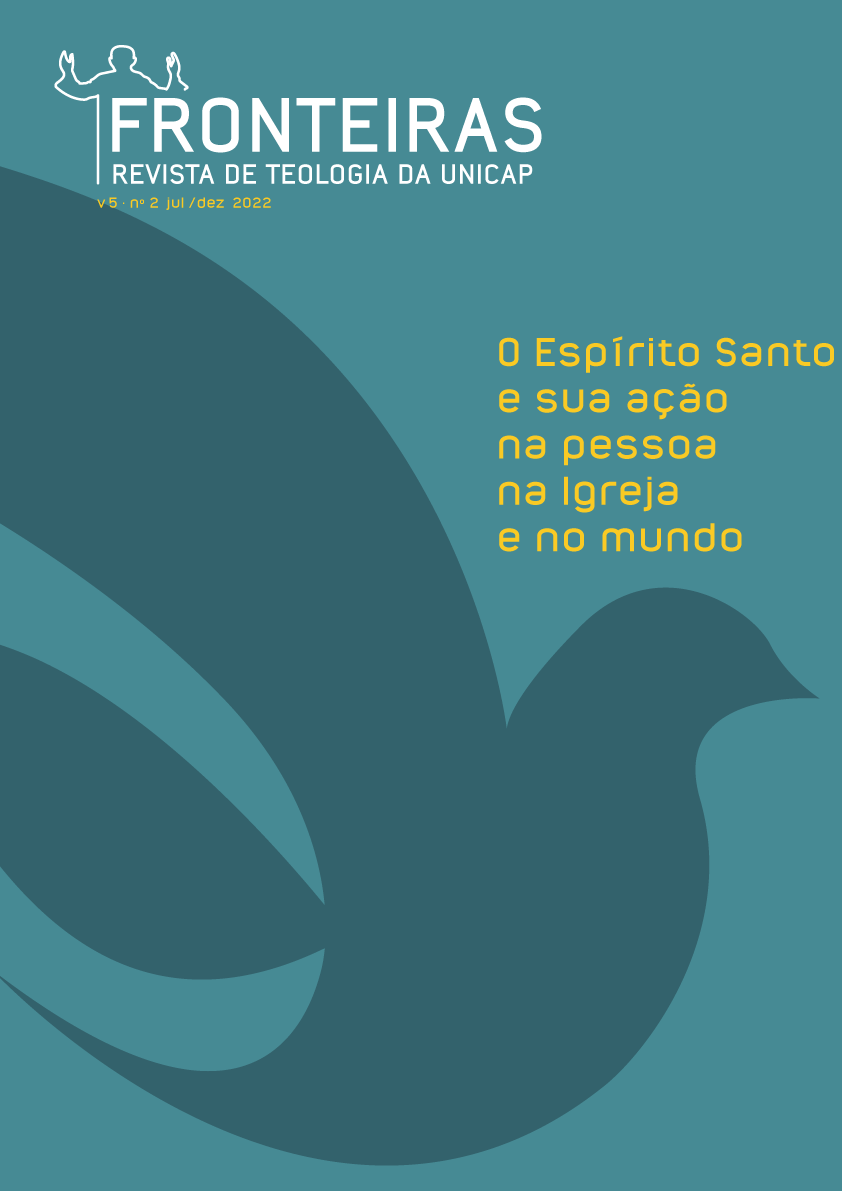Memory, Conscience and Forgiveness
Dialogues between the Philosophical and the Theological in Paul Ricoeur
DOI:
https://doi.org/10.25247/2595-3788.2022.v5n2.p449-466Keywords:
Memória, Sujeito, Liberdade, Perdão, SuperabundânciaAbstract
To the question of the origin of the subject, from a strictly phenomenological approach, Ricoeur adds the problematic of lack and its overcoming, its liberation through forgiveness. For him, the issues of the origin of the subject and the origin of forgiveness are inseparable: the question of identity “who am I?” would have as a consequence that of forgiveness, “how can I effectively be free?”. His theoretical description of the will highlights the structure of freedom proper to man, this being the condition of all human responsibility, on which culpability will be structured, which, according to Ricoeur, no man escapes, as freedom becomes reduced to slavery. We find the situation of the guilty party described earlier, extended to all humanity, guilty, bringing inherence to his freedom. Therefore, it is not destroyed, it is transformed into hope of liberation. This is precisely what myths tell man: the myth of innocence is desire, courage and imaginary experience that underpin the eidetic description of the voluntary and the involuntary. Ricoeur's approach to forgiveness is based on memory, history and oblivion, that is, it is a resumption of the author's phenomenological phase, reaffirming its existence and importance, even in its most "hermeneutic" moments.
Downloads
References
AGOSTINHO, Santo. O livre-arbítrio. São Paulo: Paulus, 1999.
BOCHET, Isabelle. Paul Ricoeur: mal et pardon. Paris: Éditions Facultés jésuites de Paris, 2013.
BUSTAMANTE, Cristina. Bajo el riesgo de la imaginación. Estudio del aprote de Ricoeur a la teología desde el concepto de sujeto. Pontificia Universidad Catolica de Chile, 2016.
CORÁ, José Élsio; NASCIMENTO, Claúdio Reichert do. Reconhecimento em Paul Ricoeur: da identificação ao reconhecimento mútuo. Revista de Ciências Humanas, Florianópolis, v. 45, n. 2, p. 407-423, outubro/ 2014.
DUQUE, João Manuel. Para o diálogo com a Pós-Modernidade. São Paulo: Paulus, 2016.
GAGNEBIN, Jeanne-Marie. Lembrar, Escrever, Esquecer. São Paulo: Editora 34, 2009.
GREISCH, Jean. Paul Ricoeur: l´itinérance du sens. Grenoble: Jérôme Millon, 2001.
JERVOLINO, Domenico; RICOEUR, Paul. Paul Ricoeur: une herméneutique de la condition humaine (avec un inédit de Paul Ricoeur). Version 6.0. Paris: Ellipses, 2002.
MIGLIORI, Maria Luci Buff. Horizontes do Perdão. Reflexões a partir de Paul Ricoeur e Jacques Derrida. São Paulo: PUC-SP, 2007.
RICOEUR, Paul. A crítica e a convicção. Lisboa: Edições 70, 1995b.
RICOEUR, Paul. A Hermenêutica Bíblica. São Paulo: Loyola, 2006.
RICOEUR, Paul. A memória, a história e o esquecimento. Campinas: Editora Unicamp, 2007a.
RICOEUR, Paul. La critique et la conviction. Paris: Calmann-Lévy, 1995a.
RICOEUR, Paul. La mémoire, l´histoire, l´oubli. Paris: Seuil, 2000a.
RICOEUR, Paul. La Vie chrétienne, Journal de l´Église presbytérienne au Canada, n. 41, 4-6, 1992.
RICOEUR, Paul. Le conflit des interprétations: essais d´herméneutique I. Paris: Editions du Seuil, 1969.
RICOEUR, Paul. Le Soi mandaté, in: Amour et Justice, Paris, Seuil, 2008b.
RICOEUR, Paul. Refléxion Faite. Esprit, 1995c.
RICOEUR, Paul. Vivant jusqu´à la mort. Suivi de Fragments. Paris: Seuil, 2007.
Downloads
Published
Issue
Section
License
Copyright (c) 2022 René Dentz

This work is licensed under a Creative Commons Attribution 4.0 International License.
Autores que publicam nesta revista concordam com os seguintes termos:
- Autores mantém os direitos autorais e concedem à Fronteiras - Revista de Teologia da Unicap o direito de primeira publicação, com o trabalho simultaneamente licenciado sob a Licença Creative Commons Attribution que permite o compartilhamento do trabalho com reconhecimento da autoria e publicação inicial nesta Revista.
- Autores têm autorização para assumir contratos adicionais separadamente, para distribuição não-exclusiva da versão do trabalho publicada nesta revista (ex.: publicar em repositório institucional ou como capítulo de livro), desde que reconheça e indique a autoria e a publicação inicial nesta Revista.
- Autores têm permissão e são estimulados a publicar e distribuir seu trabalho online (ex.: em repositórios institucionais ou na sua página pessoal) a qualquer momento depois da conclusão de todo processo editorial, já que isso pode gerar alterações produtivas, bem como aumentar o impacto e a citação do trabalho publicado (Veja O Efeito do Acesso Livre).






















